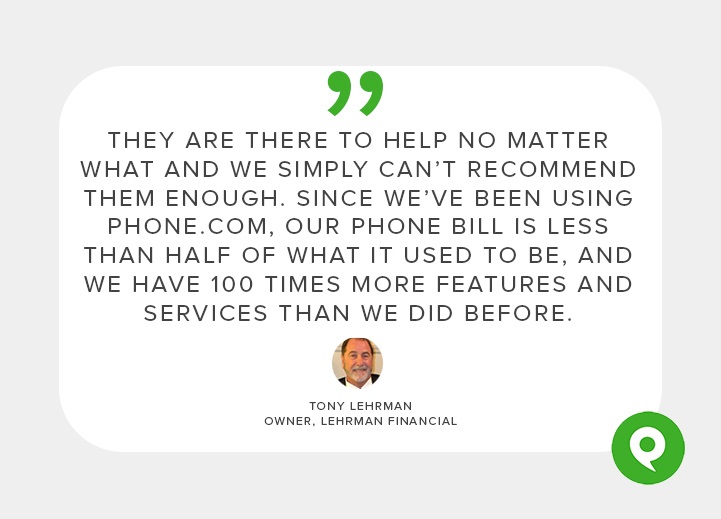Ari Rabban remembers what many have forgotten or never knew to begin with: that New Jersey was the nation’s Silicon Valley for much of the 20th century.
At the hub of it all was the telephone. And at the hub of the telephone—and countless other world-changing innovations—was Bell Labs, quietly tucked away in picturesque Murray Hill.

The Phone.com CEO thinks back to the first days of his company, an award-winning voice over IP (VoIP) provider dedicated exclusively to small and midsize businesses, and rattles off the first day it went live.
“The week before Christmas, 2007” he recounts, his voice buoyant with memories of the Newark-based company’s early days. “December 15, 2007.”
What he doesn’t realize—and who would, really, aside from telecom history buffs—is the historical connection between the company he co-founded and one of the most important inventions of the 20th century.
Nearly 60 years earlier, three Bell Lab physicists made the first working transistor. That day—December 16, 1947—would change technology forever. The Nobel Prize-winning invention is not only at the core of modern telecommunications, but the workhorse behind every single digital device we use today.
It’s fitting, then, that Rabban co-founded a progressive telecom company in the same state, just one day shy of the 60th anniversary of the transistor. Those three physicists—John Bardeen, Walter Brattain, and William Shockley — were exactly the type of innovators Rabban and Phone.com CTO/EVP Alon Cohen are targeting: energetic, creative, and often operating on a shoestring budget.
Eleven years after its founding, more than 35,000 small and midsize businesses (SMBs) rely on Phone.com for affordable cloud-based VoIP — the kind once only available for large corporations. It’s packed with over 50 futuristic features that not only make life easier for SMB owners and their employees, but, in Rabban’s words, make e

Boasting everything from call forwarding (to any kind of phone, anywhere in the world) and group messaging to mobile faxing, call recording, voicemail-to-email, and audio & video conferencing, not to mention the ability to add infinite user extensions—all starting, somehow, at less than 10 dollars a month—the service makes traditional PBX phone systems look like they’re stuck in the Dark Ages.
At the core of the service is not only the ability to, as the company declares on its website, “never miss a call again,” but for users to keep their work and personal technologies completely separate, even if they’re using a personal cell phone, as is often the case with SMBs.
Another appeal is the system’s call handling feature, which allows businesses to create customized rules that route incoming calls to different numbers, extensions, greetings, menus, and more, based on the day and time a call is received. Phone.com’s loyal customers are thrilled with it. And Rabban couldn’t be more pleased.
“There are only a few VoIP providers that really serve and focus on the needs of small and midsize businesses the way we do, with the right balance of price, customer service, and feature set,” he explains. “And the fact that we have 24/7 home-grown, US-based service is, overall, a winning combination.”

“I think small businesses are neglected” by most VoIP providers, he continues. “I also understand why. When a service provider like us is able to raise capital, the inclination is to go upstream after bigger businesses. We’ve seen it with pretty much every one of our competitors. Even the ones that started with the goal of servicing small businesses.”
Phone.com hasn’t had any trouble getting business or raising capital. Customers were lining up to sign up for their service when they were still in beta mode. And the company made state headlines in 2013 when it raised $2 million, half of it from Manhattan-based investment firm ff Venture Capital, and the other half matched by a line of credit from the New Jersey Economic Development Authority’s Edison Innovation Venture Capital Growth Fund.
Headquartered in Newark’s historic and newly renovated Hahne & Co. building, the young company’s success is powered by Rabban and CTO/EVP Alon Cohen’s deep roots in telecom. Both got their start in the Israel Defense Forces’ telecommunications corp. And both have been in the VoIP industry since its infancy.
Widely recognized as a founder of VoIP, Cohen holds five U.S. patents, one for the audio transceiver, the catalyst behind voice over network products, and, eventually, the entire VoIP industry.

“Transformation is a journey with no finish line. To succeed, we must keep reinventing ourselves – reinventing our business, and reinventing our goals. We may fail, that’s true, but each step backward helps us learn how to take an even bigger step forward – maybe even pivot in a new direction. But always forward.”
– Ari Rabban, CEO
In 1989, he co-founded VocalTec. Just seven years later, the company brought the world’s first VoIP product to market. Rabban, then at Lucent Technologies, joined Cohen at VocalTec in 1998. The duo has been inseparable since. And they have no plans to leave what’s become their home state.
Rabban, who sits on the board of the NJ Tech Council, is thrilled with Phone. com’s relatively new home in the Hahne & Co. building. Much like the company itself (a “10-year-old startup,” as he playfully describes it), Newark is bustling with innovation. And neither the city, the state, nor Phone.com—now 120 employees strong—show any signs of slowing down.
“We’re growing. We’re innovating. We’re building new services,” Rabban says, his energy contagious. “The definition of phone service is changing. It’s not just talking. It’s technology.”

“VoIP phone service has changed the way everyone communicates. It has allowed businesses to be more mobile, flexible and save money. It has allowed people all over the world to stay connected without paying high long-distance fees. Plus, it gives smaller businesses an option to have reliable phone service, without a dedicated IT team and an in-house system.”
– Alon Cohen, CTO












